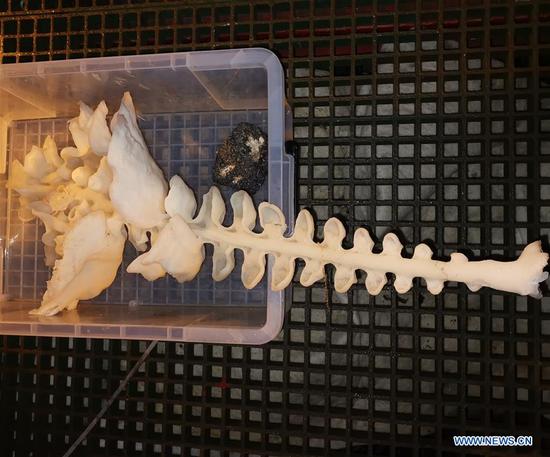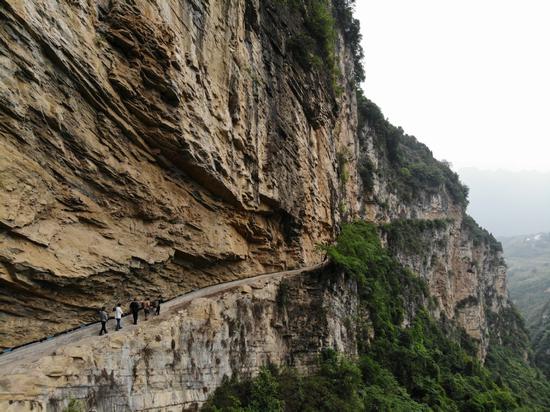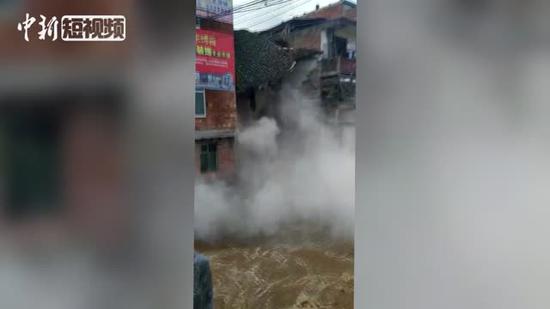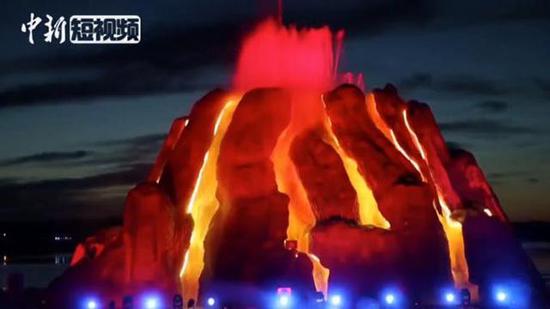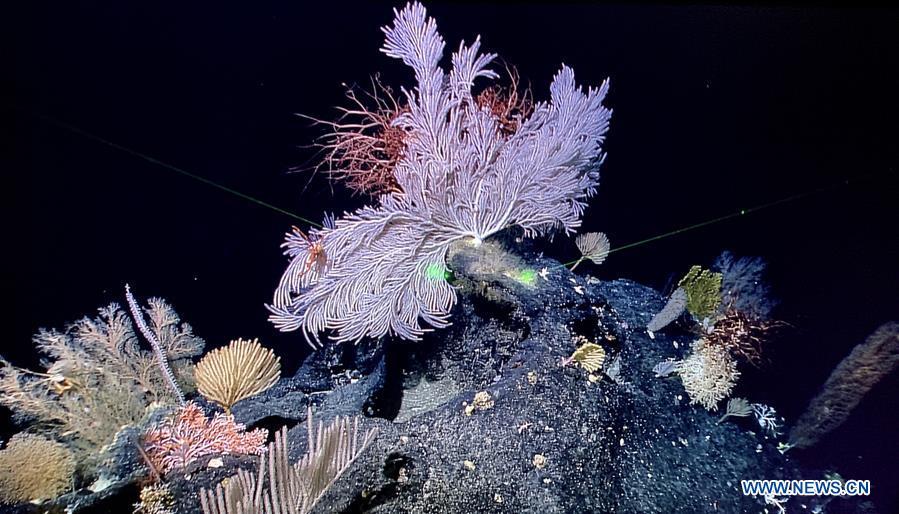
Photo taken by Discovery, a remote operated vehicle aboard China's research vessel KEXUE (Science), shows "seabed gardens" in western Pacific Ocean on May 28, 2019. KEXUE finished its investigation of seamounts in the west of the Pacific Ocean and started to sail back on June 15. During the expedition, Discovery, a remote operated vehicle aboard KEXUE, made 19 dives and captured more than 800 collections of biological samples, including corals, sponges, shrimps and shellfishes. "There are about 250 species in the collections, amounting for the total species we had collected in two expeditions in past few years," said Xu Kuidong, chief scientist aboard and a researcher of Chinese Academy of Sciences. (Xinhua)
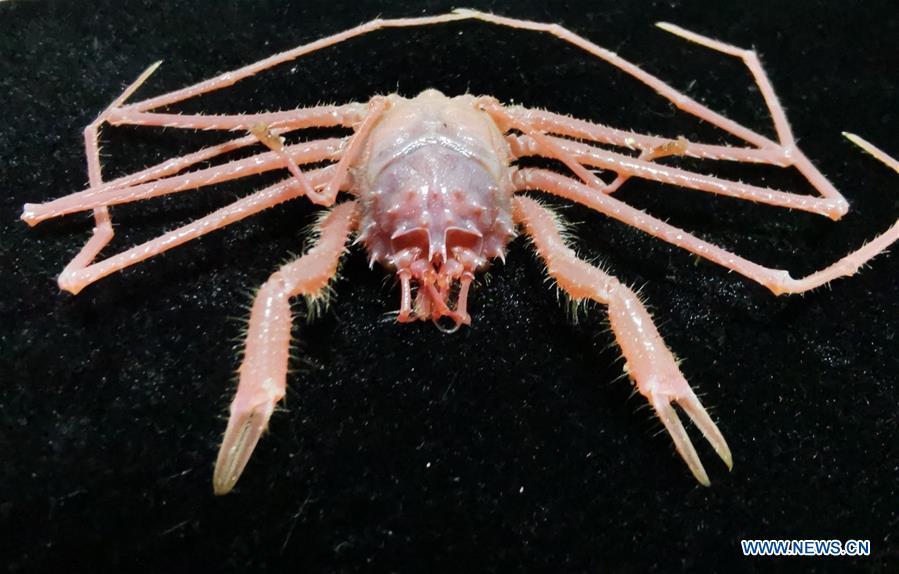
Photo taken on May 31, 2019 shows a deep-sea crab collected by Discovery, a remote operated vehicle aboard China's research vessel KEXUE (Science), in western Pacific Ocean. KEXUE finished its investigation of seamounts in the west of the Pacific Ocean and started to sail back on June 15. During the expedition, Discovery, a remote operated vehicle aboard KEXUE, made 19 dives and captured more than 800 collections of biological samples, including corals, sponges, shrimps and shellfishes. "There are about 250 species in the collections, amounting for the total species we had collected in two expeditions in past few years," said Xu Kuidong, chief scientist aboard and a researcher of Chinese Academy of Sciences. (Xinhua/Zhang Xudong)

Photo taken by Discovery, a remote operated vehicle aboard China's research vessel KEXUE (Science), shows a deep-water sea slug in western Pacific Ocean on May 27, 2019. KEXUE finished its investigation of seamounts in the west of the Pacific Ocean and started to sail back on June 15. During the expedition, Discovery, a remote operated vehicle aboard KEXUE, made 19 dives and captured more than 800 collections of biological samples, including corals, sponges, shrimps and shellfishes. "There are about 250 species in the collections, amounting for the total species we had collected in two expeditions in past few years," said Xu Kuidong, chief scientist aboard and a researcher of Chinese Academy of Sciences. (Xinhua)
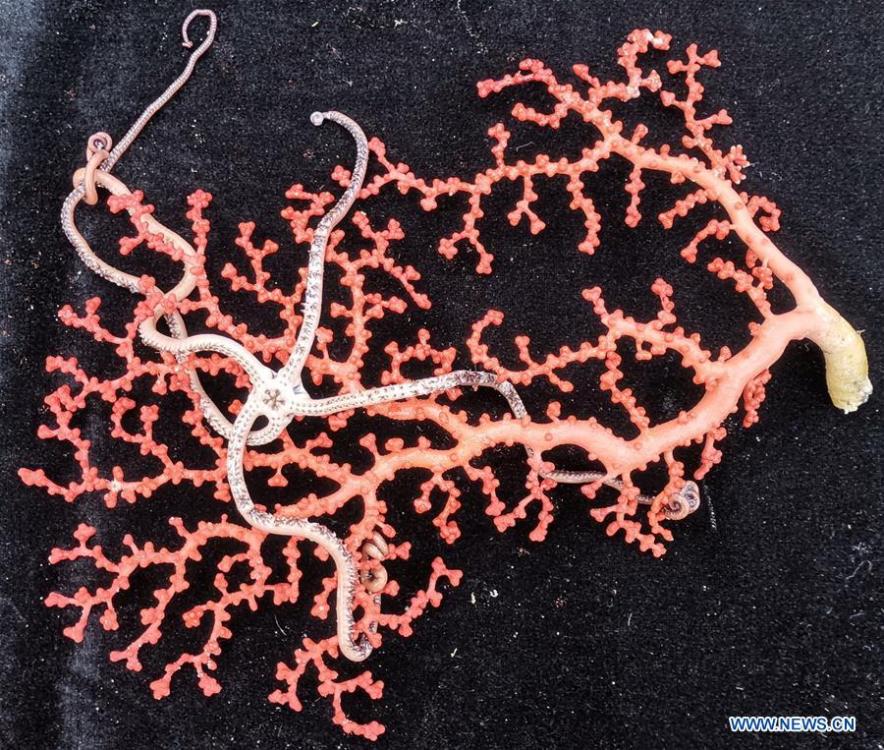
Photo taken on June 5, 2019 shows samples collected by Discovery, a remote operated vehicle aboard China's research vessel KEXUE (Science), in the west of the Pacific Ocean. KEXUE finished its investigation of seamounts in the west of the Pacific Ocean and started to sail back on June 15. During the expedition, Discovery, a remote operated vehicle aboard KEXUE, made 19 dives and captured more than 800 collections of biological samples, including corals, sponges, shrimps and shellfishes. "There are about 250 species in the collections, amounting for the total species we had collected in two expeditions in past few years," said Xu Kuidong, chief scientist aboard and a researcher of Chinese Academy of Sciences. (Xinhua/Zhang Xudong)
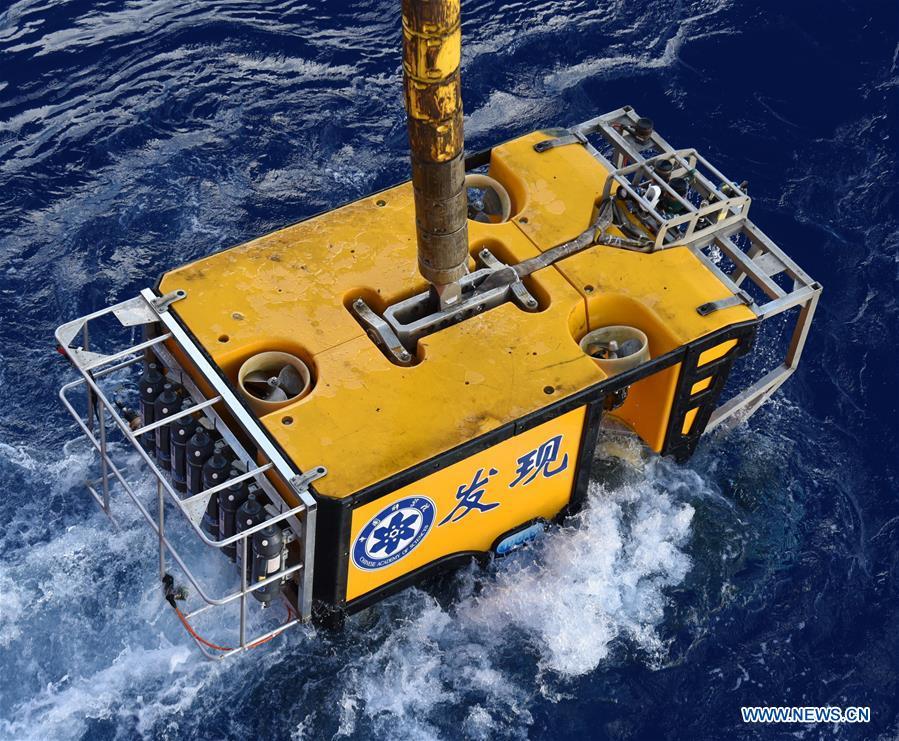
Photo taken on May 27, 2019 shows Discovery, a remote operated vehicle aboard China's research vessel KEXUE (Science), returning from a dive in western Pacific Ocean. KEXUE finished its investigation of seamounts in the west of the Pacific Ocean and started to sail back on June 15. During the expedition, Discovery, a remote operated vehicle aboard KEXUE, made 19 dives and captured more than 800 collections of biological samples, including corals, sponges, shrimps and shellfishes. "There are about 250 species in the collections, amounting for the total species we had collected in two expeditions in past few years," said Xu Kuidong, chief scientist aboard and a researcher of Chinese Academy of Sciences. (Xinhua/Zhang Xudong)
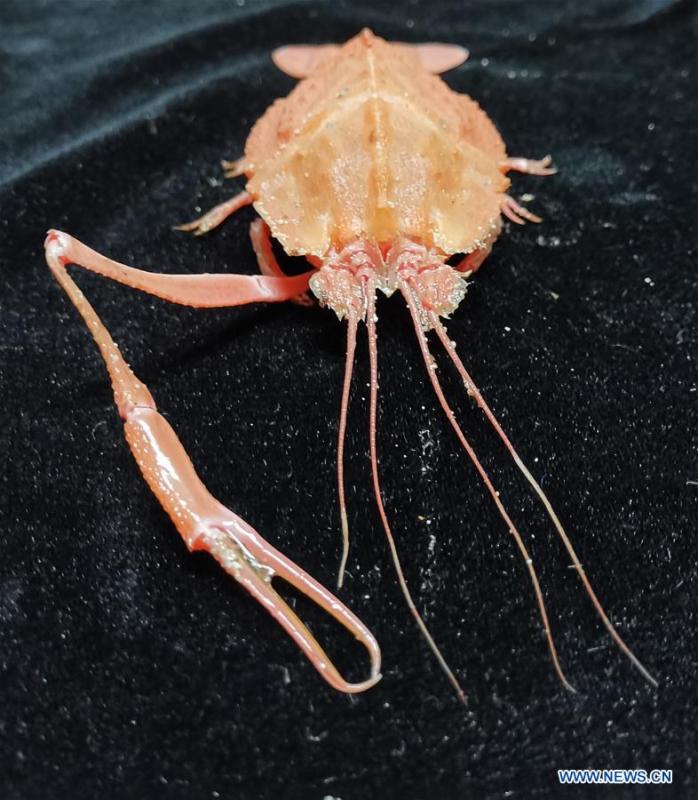
Photo taken on May 31, 2019 shows a deep-sea crab collected by Discovery, a remote operated vehicle aboard China's research vessel KEXUE (Science), in western Pacific Ocean. KEXUE finished its investigation of seamounts in the west of the Pacific Ocean and started to sail back on June 15. During the expedition, Discovery, a remote operated vehicle aboard KEXUE, made 19 dives and captured more than 800 collections of biological samples, including corals, sponges, shrimps and shellfishes. "There are about 250 species in the collections, amounting for the total species we had collected in two expeditions in past few years," said Xu Kuidong, chief scientist aboard and a researcher of Chinese Academy of Sciences. (Xinhua/Zhang Xudong)











